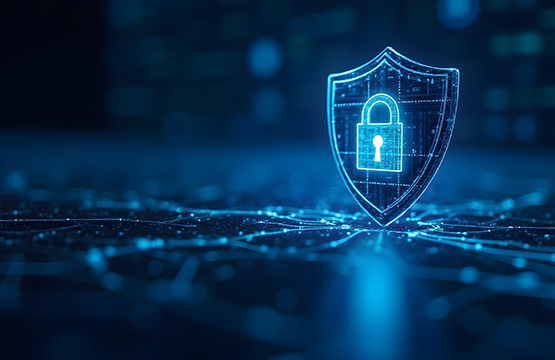Fraud Prevention
Fraud Prevention
They're everywhere. Scammers and fraudsters trying to steal your information, your money and your peace of mind. The tactics used by these fraudsters are becoming more and more sophisticated every day, so how do you protect yourself? Education is your best line of defense. Let learning be your power to protect yourself from being a victim. Stay vigilant to stay safe.
Fraud Facts
Fraud can have a significant impact on our economy, our businesses, our wallets and our peace of mind. At some point in our lives, we will all be affected by fraud, whether it's receiving a suspicious email, or possibly being a victim. When it comes to fighting fraud, we are all in this together. Reporting fraud is just as important as recognizing the signs of a scam.
 |
 |
 |
|
$544 million
lost to fraud in 2025
(as of Sept 2025)
|
33,854 victims
of fraud in 2025
(as of Sept 2025)
|
Only 5% to 10% of
fraud was reported in 2025
|
Source: Canadian Anti-Fraud Centre
Request A Fraud Presentation
Are you interested in having a fraud presentation in your community? We'll provide the presenter and information - just tell us when and where! Our fraud presentations cover topics such as current scams and how to keep your information and accounts safe. Let's work together to be fraud-fighters!
Fill out the form and a Fusion representative will be in touch to discuss details.

Prevent Fraud From Happening To You
Learn how to protect your personal information and your online accounts.

How To Report Fraud
Have you been a victim of fraud? Learn what to do and how to report the fraud.
Prevent Fraud From Happening To You
You receive a suspicious email or phone call from a stranger. What is the first thing you should do? STOP before you proceed with any requests and THINK about whether this request is legitimate. Always QUESTION whether or not the person on the other end of the phone call or email is telling the truth or is seeking to cause you harm. A few more tips....
Don't be afraid to say no
Scammers will use high pressure tactics that play on your emotions. If you receive a phone call or an email that asks you to buy something or send money right away, ask them to verify in writing. If the request does not seem legit, delete the email or hang up the phone.
Do your research
Always verify that the organization or person you are dealing with is legitimate before you take any action. Call the actual organization such as your financial institution, Canada Revenue Agency and/or your credit card company, and ask whether the request is legitimate. Beware of fake or deceptive ads that may appear online. Always verify that the company and its services are real before you make a purchase or provide information.
Don't give out personal information
Never provide personal information such as name, address, birthdate, Social Insurance Number, credit card or banking information if you receive an unsolicited phone call. If you didn't initiate the call, you don't know who you are talking to. Do not trust the information on your call display because it can be easily manipulated by fraudsters.
If you receive a suspicious message from someone claiming to be from your financial institution, contact them directly using trusted contact information. Fusion, or any other financial institution, will never ask for personal information over the phone or through a text or email.
Don't be fooled!
Fraudsters will often provide the first 4 to 6 numbers of your debit or credit card which is also known as the Bank Identifier Number (BIN). Most cards with specific financial institutions begin with the same numbers as an attempt to convince you that they are legitimate.
The government won't send you a refund via email or text message. Always look up the agencies' official contact info and initiate the communication through, such as a phone number or login directly to your account to view official correspondence.
If you are contacted by someone claiming they can help you recover stolen funds, be cautious. The Canadian Anti Fraud Centre, police and government agencies will never contact you and ask for a fee.
Beware of upfront fees
Many fraudsters will ask you to pay fees in advance of receiving goods, services, or a prize. It's illegal for a company to ask you to pay a fee upfront before they will give you a loan. In Canada, there are no fees or taxes for prize winnings.
Protect Your Computer
Install anti-virus software on your computer and keep your operating systems up to date. Never click on any urgent messages that pop up while you're browsing online. If you receive an email, be wary of clicking on links or attachments as the scammer may be trying to install a virus or malware on your computer. Legitimate computer companies will never call you and claim that your computer is infected with a virus.

How To Protect Your Online Accounts
In today’s digital world, your online banking credentials are the keys to your financial kingdom. Practicing strong password hygiene is essential to protect your accounts from fraud, identity theft, and unauthorized access.
Note: Fusion staff will never ask for your password and cannot see your current password.
What Makes A Good Password?
Use a strong, unique password
- Length matters: Aim for at least 12–16 characters.
- Mix it up: Combine uppercase and lowercase letters, numbers, and special characters.
- Avoid the obvious: Don’t use names, birthdays, or common words like “password” or “123456
Never reuse passwords
- Using the same password across multiple sites increases your risk. If one site is breached, all your accounts become vulnerable.
- You MUST use a different password for your online banking than other services (such as email, social media, or shopping sites)
Use a passphrase
- A passphrase is a type of password that uses a sequence of words or a full sentence instead of a single word or random characters. It’s designed to be both easier to remember and harder to crack than traditional passwords.
- Use 4–6 unrelated words (e.g., CoffeeTigerWindowJazzMoon).
- Add punctuation or numbers for extra strength.
- Avoid famous quotes or song lyrics, they’re easier to guess.
Enable Multifactor Authentication
To add an additional layer of security, enable multifactor authentication on all of your online accounts and never share your code with anyone.
Check the url and bookmark it
Before logging into you account, double check that the URL is the correct one. Scammers will create fake sites to try and steal your info. If the account is one you use often, bookmark the link and always use the bookmark to access the site.
Never click on links in texts or emails until you confirm that it's legit.
Fraudsters will use a variety of tactics to try and steal your passwords in order to gain access to your online accounts. If you receive a text or email that you were not expecting, do not click on any links until you can confirm it's from a legitimate source.
Update Your Privacy Settings
Do a deep dive into your social media accounts and update your privacy settings. It's best to set your personal accounts to private so fraudsters can't use your information to scam you or steal your identity.
How To Report Fraud
Fraud can happen to anyone at anytime. If you think you have been a victim of fraud, remember you are not alone. Reporting fraud or any suspicious activity to the proper authorities will help to stop fraudsters and prevent the fraud from happening to others.
If you have been a victim of fraud, your first step is to remain calm and gather all of the important information, including documents, receipts, copies of emails or text messages. Then report the incident to the proper authorities listed below:
Your Financial Institution
If the fraud affected your online banking accounts, please call your financial institution immediately. We'll work with you to ensure you accounts are properly protected and determine what steps are necessary to regain access to your online banking.
Fusion Credit Union Contacts:
Phone: 1-877-226-7957
The Canadian Anti-Fraud Centre
The Canadian Anti Fraud Centre collects information on fraud and identity theft and is is a source of information regarding past and current scams affecting Canadians. The Royal Canadian Mounted Police, the Competition Bureau and the Canadian Anti Fraud Centre work together to provide news, information and resources to Canadians regarding fraud.
Canadian Anti-Fraud Centre Contacts:
Report fraud by phone: 1-888-495-8501
Local Police
Report the fraud to your local police authorities. They will provide you with a police report number which may be required to recuperate your losses if any occurred.
Report Cybercrime and Fraud website.
The Royal Canadian Mounted Police have launcced a new, national system for individuals, businesses and organizations to report incidents of fraud and cybercrime. Access the link here.
In addition to the above agencies, depending on the fraud, you may need to contact the following:
Credit Bureaus
Equifax: 1-866-828-5961
TransUnion: 1-800-663-9980
Credit Card Provider
For more information on what to do if you have been a victim of fraud, visit the Competition Bureau and Canadian Anti Fraud Centre websites.
Fraud Articles

The Importance of Strong Passwords
Creating strong, safe passwords is key to preventing fraud. Learn how to create the perfect password and how to keep them safe.

 Search
Search







 www.google.com
www.google.com


